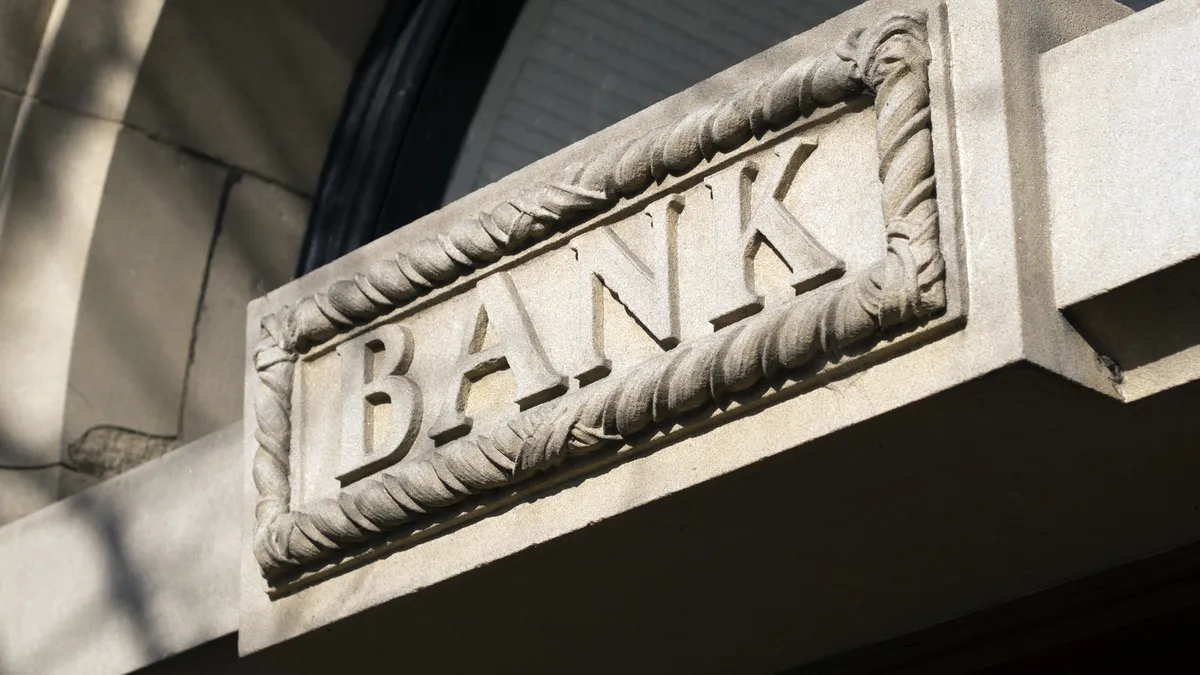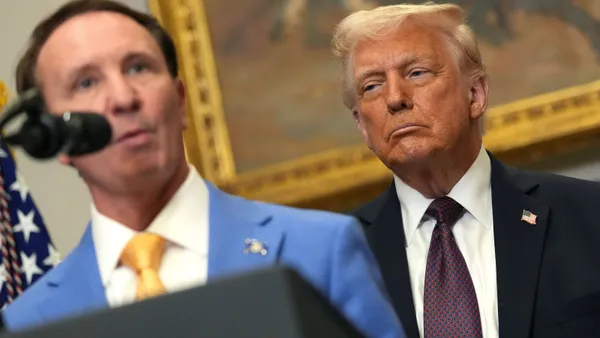Dive Brief:
- Former House Representative Scott Garrett of New Jersey, a frequent critic of the Export-Import Bank, has been nominated by President Trump to run the embattled institution, American Shipper reported.
- The president previously doubted the value of the bank, but came to find value in the protections it offers small businesses through its lending to foreign companies in order to enable them to then purchase U.S. exports. In addition, the bank provides credit programs to help businesses raise capital, as well as provide insurance in case of non-payment.
- Those who support the bank believe the agency offers an alternative when traditional financing is unavailable, particularly when doing business in high-risk locations. Critics have long held that the bank favors special interests, arguing, as Garrett did on the House floor in 2015, that "It turns the economy into a biased actor that uses your taxpayer dollars to tilt the scales in favor of its friends."
Dive Insight:
Trump's reversal and renewed support of the Export-Import Bank falls in line with his "America First" doctrine. The bank, originally created under President Franklin D. Roosevelt in 1934 as a D.C. banking corporation, was later converted into an independent agency in 1945. The bank is periodically reauthorized by Congress, most recently in 2015, amid controversy. Because the largest beneficiary of the bank is Boeing, the agency has been nicknamed "Boeing's Bank" by critics, and not without justification. As Veronique de Rugy of the Mercatus Center at George Mason University asserted, at a "40 percent share of total Ex-Im Bank loan authorizations in 2014, Boeing dwarfs the 25 percent combined share of all small businesses."
Trump has contended that his opinion of the bank changed recently after conversations with business executives — former Boeing CEO James McNerny being one — that the bank not only has value to small businesses seeking to make sales in foreign markets, but is actually profitable. But even this assertion is up for debate, as Federal Reserve economist John H. Boyd argued in 2014, “For an economic profit — that is, a real benefit to taxpayers — Eximbank’s income must exceed its recorded expenses plus its owners’ opportunity cost, a payment to taxpayers for investing their funds in this agency rather than somewhere else.”
Even President Obama, who reauthorized the bank in 2015, originally believed that the bank was not serving its intended purpose. During his initial presidential campaign in 2008, then-Senator Obama argued that "The Export-Import Bank ... has become little more than a fund for corporate welfare." But he too reversed course, believing that the bank's benefits to helping companies, particularly during the recessionary years during Obama's term, outweighed the concerns over the risk of potential special interest favoritism.
Scott Pruitt, confirmed to serve as administrator of the EPA in February, was also a controversial pick by Trump on similar grounds. Pruitt had been a longstanding critic of the EPA, challenging climate change sentiment as well as the agency's regulations on carbon emissions, but was still appointed by Trump to tackle the agency, an attempt to remedy the aspects of the EPA that were most burdensome to various industries.














